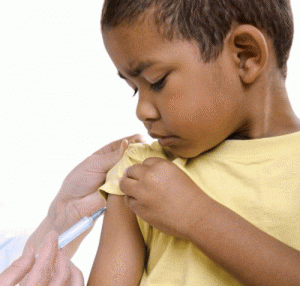Welcome to the Winter 2020 Edition of the
OCIC Newsletter!
Our goals are to provide you with the latest and most useful information on vaccines, immunizations and other related programs by searching news stories, medical articles and a variety of updates, gathered from national and international partners; and to do so by using technology in a way that reduces the use of paper.
|
|
|
2020 California Immunization Coalition Summit
Don't miss California's most important immunization conference. The 2020 California Immunization Coalition (CIC) Summit will be
June 8-10 at the Sheraton Grand Sacramento Hotel. The annual event brings together immunization advocates, health professionals and community leaders. The agenda includes plenary and workshop sessions, plus networking opportunities. Learn, share and be inspired! Space is limited so visit the
CIC's Summit page for information. Stay tuned for registration to open soon.
|
|
Influenza Activity is Increasing in Orange County
By Matt Zahn, MD
Medical Director,
Communicable Disease Control Division
Influenza activity has significantly increased in Orange County in the first half of January 2020. Orange County Hospitals have reported over 2,500 laboratory-confirmed cases of influenza. This includes two influenza-associated deaths and 15 ICU visits in adults 18 to 64 years of age and seven ICU visits in children under 18 years of age so far this season. Influenza activity is widespread throughout the state of California and in most states nationally.
 The season's primary driver so far has been influenza B. Flu B has arrived before influenza A this year, which is unusual. The reason for this is unknown, though there is speculation that it's somehow related to the minimal influenza B season seen in 2018-2019. Influenza A activity usually defines a flu season's severity, but this season has been a reminder that influenza B also causes serious disease.
While influenza B is peaking first, influenza A activity is increasing, particularly influenza A H1N1. Because influenza A has not yet peaked, we can anticipate that the season will last for several more weeks. Persons who have not yet been vaccinated will still benefit from immunization, but they sh
ould get vaccinated now.
Influenza vaccination is always the best way to prevent influenza and its potentially serious complications. Persons can go to
ochealthinfo.com/flu to find options for getting immunized.
Providers should remember to consider antiviral treatment for high-risk patients with influenza. Children under two years of age, adults 65 and older, pregnant women, and persons with chronic underlying illnesses that place them at increased risk of severe influenza disease should be begun on oseltamivir (or zanamivir) within the first 48 hours of symptoms starting, regardless of immunization status. Antiviral treatment can shorten the course of illness, but perhaps more importantly it lowers the risk that influenza infection will progress to severe disease. Additional information on persons at elevated risk for severe influenza and the use of influenza antivirals can be found at
https://www.cdc.gov/flu/professionals/antivirals/summary-clinicians.htm
|
|
New School Immunization Guidelines!
In recent years, some California schools were beginning to fall below the 95% vaccination rate, thereby jeopardizing herd immunity, as a result of a growing number of students with medical exemptions. In response, SB 276 and SB 714 were signed by Governor Newsom on September 9, 2019. At present, the CDPH does not review medical exemptions. This change in the law will allow these medical exemptions to be examined under certain circumstances listed below.
SB 276 requires the California State Department of Public Health, by January 1, 2021, to develop and make available for use by licensed physicians and surgeons an electronic, standardized, statewide medical exemption request that would be transmitted using the California Immunization Registry (CAIR), and which, commencing January 1, 2021, would be the only documentation of a medical exemption that a governing authority may accept. SB 714 allows a child who has a medical exemption issued before January 1, 2020, to be allowed to continue enrollment until the child enrolls in the next grade span.

Until January 1, 2021, doctors will prepare a form or letter for parents to submit to their school or daycare stating that the child has a medical exemption for some/all of the immunizations required for school entry. Beginning January 1, 2021, doctors will use an electronic form available through the CAIR. The
CDPH will not review every medical exemption. Under SB 276 and SB 714, medical exemptions will be reviewed when:
- A school's immunization rate falls below 95% or
- A doctor writes more than 5 medical exemptions per year beginning January 1, 2020 or
- A school fails to provide reports of vaccination rates to CDPH.
- In addition, a medical exemption that does not meet the above criteria may be reviewed, on case by case basis, if CDPH determines it is necessary to protect public health.
All existing medical exemptions continue to be valid except as explained below:
- Parents of students with existing medical exemptions will need to submit a new exemption when the student begins a new "grade span." Grade spans are: birth to preschool, kindergarten (including transitional kindergarten) and grades 1-6, and grades 7-12.
- The only existing medical exemptions that could be revoked are those that were written by a doctor subject to disciplinary action by the Medical Board.
SB 276 and SB 714 provide an appeal process for parents/guardians if CDPH revokes a medical exemption.
|
|
CalOptima Day Events
Michelle Doan, MHA, CHES
QA Analyst, Population Health Management

In 2019, CalOptima collaborated with our health network partners and community clinics in Orange County to co-host 27 health and wellness events called "CalOptima Day." These events were to outreach to CalOptima members who were due for either a well-care visit and/or immunizations. Our provider partners designated a day to prioritize appointments for CalOptima members. CalOptima successfully provided well-care checkups and immunizations to more than 1,250 Medi-Cal members through these CalOptima Day events.
|
|
Orange County's Kindergarten Vaccination Rates Remain at Historically High Levels for 2018-2019
David Nunez, MD, MPH, FAAP
Orange County Health Care Agency
For 2018-2019, the percent of children with up-to-date immunizations at Kindergarten in Orange County remained stable (unchanged from the prior school year) at 95.7% (while CA decreased slightly to 94.8%).
This continues to represent the highest level of Kindergarten immunization for Orange County in the past 20 years (the previous recorded high level was 95.5% in 1996).
 The percentage of Kindergarten children with conditional enrollment in Orange County for 2018-19, decreased to 1.8%. The percentage of Kindergarten children with conditional enrollment in Orange County for 2018-19, decreased to 1.8%.- The percentage of Kindergarten children with permanent medical exemptions (PMEs) in Orange County increased slightly to 1.1%-the highest recorded level (CA increased to 0.9%). Laguna Beach had the highest level of PMEs-9.9%. PMEs have increase annually since the elimination of personal belief exemptions (PBEs).
- For the 2018-19 school year, only one school district had fewer than 90% up-to-date KG-Laguna Beach (87.2%) and only three school districts had fewer than 95%: Huntington Beach, Newport-Mesa, and Capistrano.
- For the 2018-19 school year, CDPH reported that the immunization rates for kindergarteners in California remain at historically high levels (94.8%) for a third school year but have decreased slightly over the past two years.
|
|
Vaccine Journal Club
By Jasjit Singh, MD
Dr. Singh's Vaccine News Journal Club - comments in red
So this piece is no surprise...
The World Health Organization reported that measles cases around the world rose from 7,585,900 in 2017 to 9,769,400 in 2018, while measles-related deaths increased from 124,000 to 142,300 during the same period, with most deaths involving unvaccinated children. Meanwhile, a CDC study in the agency's Morbidity and Mortality Weekly Report showed that although yearly global measles incidence and deaths dropped between 2000 and 2018 and vaccination prevented 23.2 million deaths during that period, the number of infections and deaths have increased since 2016.
But this is an area where we could certainly do better!
Many Youngsters Traveling Abroad May Not Be Receiving MMR Vaccine, Researchers Say
The
NBC News (12/9) website reports, "Many young children traveling abroad aren't receiving the vaccines they need to protect them from measles," researchers concluded after analyzing "data on more than 14,000 kids whose families took them to health clinics specializing in international travel in advance of trips abroad between 2009 and 2018." The study revealed that, "the vast majority of babies - 92% - qualified for the" measles-mumps-rubella (MMR) vaccine, "but 44 percent of those infants did not receive it," and "neither did nearly two-thirds of the 60% of preschool-aged kids who also qualified for the vaccine."
According to
HealthDay
(12/9), "this year, the more than 1,200 cases of measles reported in the United States were largely the result of people returning from trips abroad and bringing the virus back with them." Even though youngsters "traveling overseas make up only 10% of all international travelers, they account for almost 50% of all measles cases brought to the United States over the past 10 years." The
findings
were published online in JAMA Pediatrics.
This is a very sad story about what can happen - Some background about the measles outbreak in Samoa.
The island nation of Samoa has had to grapple with two crises: a massive, deadly outbreak of measles-and the spread of disinformation by anti-vaxxers in the United States and other Western countries. Samoa only has a population of about 200,000. But in an outbreak of historic proportions, 4,900 people were infected with measles and 71 have died-mostly children under the age of 5. The government shut down for two days last week to wage a campaign of compulsory vaccination assisted by emergency personnel from all over the world.
The vaccine mandate has riled anti-vaccination activists. The anti-vaxxers' Samoa-focused work began last year when two children died in a horribly tragic event where vaccine was mistakenly reconstituted with a muscle relaxant. The country's vaccination rate for MMR plummeted from roughly 60 percent to 31 percent as the country halted its vaccination program to investigate.
Here is an opinion piece from the Washington post:
Opinion: US Anti-Vaccination Propaganda Linked To Samoan Measles Deaths.
Washington Post (12/9, Gerson) columnist Michael Gerson writes that "anti-vaccination propaganda, much of it generated in the United States," delivered through social media has made the island "a case study of 'anti-vax' success" - leading to a "completely predictable" increase in infant deaths during its deadly measles outbreak. Anthony S. Fauci of the National Institutes of Health said that prior to vaccines measles spread "rapidly among children and kills some of them. ... This is exactly what is happening in Samoa today: widespread infection and death of children. ... If you give history a chance, it will always repeat itself." Gerson calls Samoa "a reminder of a pre-vaccine past and the dystopian vision of a post-vaccine future" and calls for the prominent Americans to "not feed anti-vax conspiracy theories on social media."
As a particularly bad Influenza B season continues to ramp up, I thought these numbers were surprisingly low...
Few Childcare Centers Require Children To Get Flu Shot, Childcare Workers To Be Vaccinated, Research Indicates
Reuters (12/12) reports research indicates "only a quarter of childcare centers in the United States require children in their care to get a flu shot, and even fewer require childcare workers to be vaccinated." Investigators arrived at this conclusion "based...on a 2016 telephone survey of 518 childcare center directors in 48 states that were randomly chosen from a national database of licensed U.S. childcare centers." The findings were published online in the Journal of the Pediatric Infectious Diseases Society.
I'm happy that most educated adults believe in science, but sad that there is erosion in the belief of the importance of vaccines...
Fewer US adults believe vaccines are important, survey finds
Gabrielle Masson
-
Tuesday, January 14th, 2020
Americans in 2019 were 10% less likely to believe vaccinating children is important than in 2001, according to a Gallup poll
published
Jan. 14.
Results were based on phone interviews conducted Dec. 2-15 with a random sample of 1,025 adults in all 50 states and the District of Columbia.
Five key survey findings:
- In 2019, 84% of U.S. adults said vaccinating children was very important, down from 94% in 2001. Attitudes have been relatively unchanging since 2015, when 84% of adults considered vaccination very important.
- The only group that maintained its 2001 level of support for vaccines in 2019 were Americans with postgraduate degrees. Among all other education subgroups, perceptions of the importance of vaccination dropped by at least 5%.
- The survey found 11% of adults in 2019 thought vaccines were more dangerous than the diseases they prevent, while 86% believed vaccines were less dangerous. In 2015, 87% felt that vaccines were less dangerous, compared to 90% in 2001.
- In the latest poll, 10% of adults said vaccines cause autism in children, an increase from 6% in 2015. In 2019, 45% did not think vaccines caused autism, higher than the 41% who said the same in 2015. Last year, about 46% of adults were unsure if vaccines caused autism, down from 52%.
- Nearly 9 in 10 (89%) of adults said they heard "a great deal" or "a fair amount" about the advantages of vaccinations in 2019, up from 83% in 2015 and 73% in 2001. However, 79% said they heard a great deal or a fair amount about the possible disadvantages of vaccines, an increase from 73% in 2015 and 39% in 2001.
|
2019 TFAL SCAL Kaiser Permanente
By Sara Villagrana, LVN
Kaiser Permanente
SCAL Kaiser Permanente conducted over 134 TFAL (Teach Flu a Lesson) Clinics, Averaging about 61 vaccines per TFAL Clinic.
90% of the Flu Vaccine administered this season was Flu Mist. Our TFAL program was supported by 671 Nursing Schools. Teach Flu a Lesson in Orange County alone supports 69 schools in the schoo

l districts of Anaheim, Buena Park, Santa Ana and Savanna. Orange County supports the majority of the schools in TFAL and will continue to grow every season to come. It is a remarkable job done with the partnership of our District School Nurses that we can vaccinate so many children in a small gap of two and a half months. SCAL Kaiser Permanente will continue to engage with all areas and regions to encourage public schools to allow us to help them protect their students against the flu.
|
|
|
|